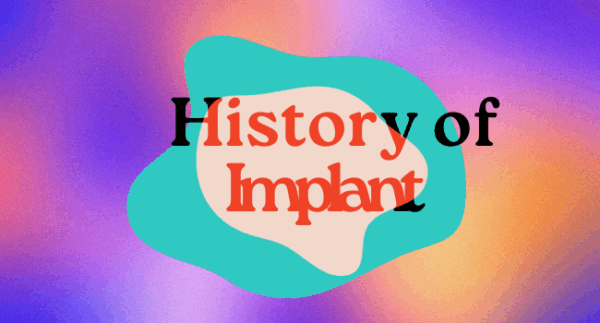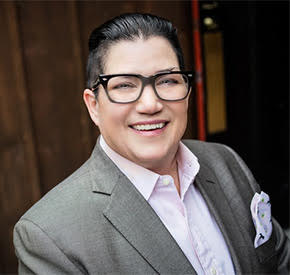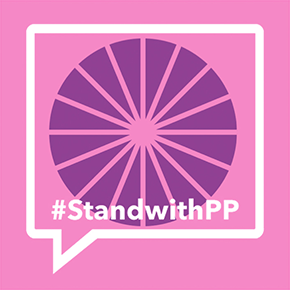Aug 14

Help Us Protect Access to Sexual and Reproductive Health Care Today!
 The Reproductive Health Access Project presents, V TO SHINING V is right around the corner on September 26, 2015 and we are proud to announce the addition of comedian, actress, and jazz musician, Lea DeLaria to our list of performers! Be sure to get your tickets today!
The Reproductive Health Access Project presents, V TO SHINING V is right around the corner on September 26, 2015 and we are proud to announce the addition of comedian, actress, and jazz musician, Lea DeLaria to our list of performers! Be sure to get your tickets today!
Lea DeLaria was the first openly queer comic to perform on television in America which launched her into world recognition. She is currently known for her stand-out role as Big Boo in the Netflix hit series Orange is the New Black. Prior to her success on Orange, she was seen in countless TV series (Awkward, Californication, The Oblongs, One Life to Live, Law and Order SVU, Will and Grace, Friends to name a few), and movies (First Wives Club, Dear Dumb Diary, Edge of Seventeen), with appearances on and off Broadway that have and continue to garner her recognition and acclaim.
Her on and off Broadway credits are too numerous to mention, but stand outs include her appearance on Broadway in “On the Town,” which she won Obie and Theatre World awards, as well as a Drama Desk nomination; an Ovation nomination for her appearance in the “Boys from Syracuse;” and playing both Edie AND Doctor Scott in” The Rocky Horror Show.” If that’s not enough, Lea has five records out on the Warner Jazz and Classics label and her book “Lea’s Book of Rules for the World” is in its third printing at Bantam Doubleday and Dell.
We are also excited to introduce Buzz Off, Lucille as our evening’s MC. They are a New York based sketch group featuring Abby Holland, Molly Gaebe, Jenn Roman, and Julie Rosing. Their videos have been featured on Huffington Post, College Humor and VH1. Check them out at BuzzOffLucille.com!
New York based comedians Betsy Kenney & Alise Morales will also be joining our event as the evening’s raffle hosts. Betsy is currently performing at Harold Night at the Upright Citizens Brigade and Alise has a feature out on IFC’s Comedy Crib called Horrible Insane Girl. These two will be raffling off prizes which include, a 3 class pass to SoulCycle, A Cuddle Vibe and an Orgasm in a Box Kit from Babeland, a 1-year subscription to Bitch Magazine and Ms. Magazine, a gift certificate to PJ Clarkes, signed NY Giants gear, a Diva Cup, wine and tastings from Free Range Wine and Spirits, and more!
We could not be more thrilled to have these amazing performers celebrating our 10-year anniversary on September 26, 2015 at V TO SHINING V. Seating is limited so be sure to purchase your tickets today – this is a show you definitely do not want to miss!
If you are interested in becoming a sponsor or donating to our raffle, please contact our development associate, Kristin Ploog at Kristin@reproductiveaccess.org or for more information visit our event page.
 RHAP is dedicated to making reproductive health care accessible to everyone. Planned Parenthood is an important ally in our work to ensure that clinicians have the highest quality training to provide their patients with the best care possible. We wouldn’t be able to do our work without them. They help train our fellows and many of the clinicians in our Miscarriage Care Initiative.
RHAP is dedicated to making reproductive health care accessible to everyone. Planned Parenthood is an important ally in our work to ensure that clinicians have the highest quality training to provide their patients with the best care possible. We wouldn’t be able to do our work without them. They help train our fellows and many of the clinicians in our Miscarriage Care Initiative.
Planned Parenthood’s prominence in our field makes them an easy target for anti-abortion activists. But these recent attacks against Planned Parenthood aren’t just about Planned Parenthood, they are about limiting the rights of women to make decisions about their bodies, and the rights of clinicians to offer basic health care. Every person providing or receiving reproductive health care is a target.
Political forces are rallying to defund Planned Parenthood. Legislation has been proposed to cut all federal funding to Planned Parenthood. So far, these efforts haven’t worked at the federal level. But states are taking action to defund Planned Parenthood. So far, Alabama, Arkansas, Louisiana, New Hampshire, and Utah have all cut state funding to Planned Parenthood.
The federal funding (Title X) Planned Parenthood receives does not cover abortion care. Rather, Title X funding covers basic family planning care, including confidential well-woman exams, contraception, cancer screenings, and STD testing and treatment for all individuals, regardless of sex, gender identity, or income.
One in five women will use Planned Parenthood’s services at least once in her life; 37% of patients receiving health care under Title X use Planned Parenthood. Defunding the organization would affect health services for millions of people across the country. It is estimated that without the contraceptive services provided in Title X clinics like Planned Parenthood, unintended and teen pregnancy rates would be 35% higher.
We cannot be silent. Everyone—not just pro-choice organizations, health centers, and clinicians—must speak out on this issue. By remaining silent, the 63% of Americans who oppose defunding Planned Parenthood might just enable politicians to pass this legislation.
We urge you to join us and #StandWithPP.
Lisa Maldonado is one of the original founders of the Reproductive Health Access Project and has served as the organization’s executive director since 2005.
“Ten years ago Linda Prine, Ruth Lesnewski, and I joined forces to launch the Reproductive Health Access Project. We didn’t have an office (I worked from a small desk in the corner of my bedroom), staff, or funding. But, we did have a clear mission: to integrate abortion, contraceptive and miscarriage care into primary care so that everyone, everywhere has access to reproductive health care.
Ten years later, Linda, Ruth and I are still working together, but we are joined now by five staff, four clinical fellows, and a national network of more than 850 clinicians. And, we have an office (actually two) now.
We spent the last ten years piloting, refining, and expanding successful strategies to destigmatize reproductive health care. We developed an online resource library of clinical tools and patient education materials to make providing reproductive health care easier for primary care clinicians. We created free, online teaching tools so clinicians could learn and stay up-to-date on the latest in reproductive health care. We developed intensive training and support programs to create physician leaders who are teaching future clinicians and transforming health care in their local areas.
Ten years is a long time, but not long enough. Our mission is more urgent today than it was when we started in 2005. The huge upswing in state legislation restricting access to reproductive health care, in particular abortion care, has made access to care more uneven than ever. Large swaths of our country now have little to no access to abortion care. Like in the days before abortion was legal, clinicians fly in and out of low access areas to provide a patchwork of care in low resource, highly regulated areas. (Our Physician Matching Project is helping connect trained clinicians to clinics in need.) It sometimes feels like we have to work harder just to maintain the inadequate status quo, let alone make things better.
Ten years ago, we were the lone voice advocating for mainstreaming reproductive health care. As standalone family planning and abortion clinics are increasingly under attack, primary care may become the only source of reproductive health care for even more communities. We remain committed to training and supporting primary care clinicians so that abortion, contraception, and miscarriage are accessible to everyone, everywhere—as long as it takes!”

Starting next year, Oregon and California will be the first two states in the nation to offer birth control without a prescription. Women living in these states will be able to purchase birth control at the pharmacy after undergoing a short health screening performed by their pharmacist. The laws differ somewhat in the two states. In California there is no patient age restriction, but in Oregon birth control may only be given to women 18 and older. Oregon women under 18 can still obtain birth control at their pharmacy; however they must show proof of a prior prescription from a physician. Furthermore, Oregon will require pharmacists to undergo training before they are allowed to dispense contraceptives.
These measures will be implemented with goal of making accessing contraception easier for both patients and clinicians. Clinics in both states have experienced an influx of patients who desire contraception who have recently been insured by the Affordable Care Act, and many clinicians are hopeful that these measures will help streamline the process of obtaining such necessary, basic health care.
These measures are an exciting step in making contraceptive care more easily available, and RHAP is thrilled to play a role in helping implement these new policies. In California, pharmacists will give patients a user guide with information and answers to frequently asked questions about their chosen form of birth control. The California Board of Pharmacy will distributing the Reproductive Health Access Project’s Birth Control User Guides to pharmacists and pharmacies throughout the state. The fact sheets to be used will include our Depo Provera User Guide, Progestin-Only Pill (Mini-Pill) User Guide, Pill User Guide, Patch User Guide, and The Ring User Guide. These fact sheets will be available in six languages, and are an excellent resource for patients and pharmacists alike. We are excited to be able to play a role in this groundbreaking new measure, and hope that policies like this one are replicated in more states across the country.
Sophia Schilling, a rising senior at the University of Iowa majoring in communications with a minor in nonprofit management, was our Reproductive Rights Activist Service Corps (RRASC) Intern this summer. The RRASC program matches passionate undergraduate students from around the country with reproductive and social justice organization. This year, RRASC received over 1,000 applications from 350 campuses, and Sophia was one of 40 students who were accepted and placed at reproductive rights organizations across the country.
“My time at the Reproductive Health Access Project has been an eye opening experience that I will take with me for the rest of my career in this field. I have been able to spend time in the RHAP office as well as be trained as an abortion doula at a nearby community health center, which has allowed me to have the unique experience of seeing the full spectrum of work that RHAP does and why it is so important. Working with this organization has given me the opportunity to learn how a small, nonprofit functions on a day-to-day basis, and experience the challenges that often come with organizations affiliated with reproductive health care. Perhaps the most rewarding part of this experience came from getting to see the work we do at RHAP directly impact clinicians and patients in the health center. For example, I had a hand in creating and improving our patient education materials and then was able to see those very materials used in a real-life clinical setting. Seeing the way that RHAP’s work improves the lives of patients and clinicians made an already great job even better, and made me realize how important organizations like this one are in the fight for safe, accessible, and affordable reproductive health care for all.
Having strong female role models during my upbringing was what first piqued my interest in reproductive justice, but working with the wonderful team at RHAP and seeing the way that patients, physicians, nurses, and advocates overcome adversity and educate others first-hand has firmly cemented my passion and desire to continue working in this field and ensure women everywhere have the rights that they are entitled to.”
Subscribe to receive monthly updates from the Reproductive Health Access Project.
Your gift allows us to train and support health care providers across the United States so they can offer patients compassionate and comprehensive care.
Aug 14
